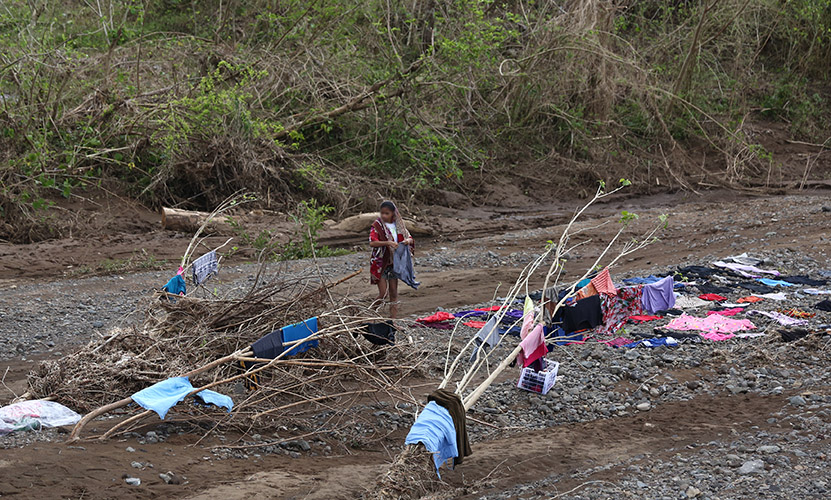Senator Win Gatchalian called on the government to ensure interventions that would prevent a possible spike in teenage pregnancies in storm-hit areas, a phenomenon observed in the aftermath of Typhoon Yolanda in 2013.

Gatchalian cited a study by the Department of Science and Technology-National Research Council of the Philippines (DOST-NRCP) in 2017, which revealed that when Typhoon Yolanda hit Eastern Visayas, 23.5 percent from the region’s total population of teenage girls got pregnant. The study also showed that 14.8 percent had another child the following year.
Dr. Gloria Luz Nelson, the author of the study, shared that young girls aged 10-19 are the most vulnerable group in relocation and evacuation centers, where they are at risk of getting molested or pregnant with the length of their stay.
According to Gatchalian, this should prompt government agencies, including local government units (LGUs), to ensure the protection of young girls in evacuation and relocation centers. He added that steps on resuming education services are crucial to restore normalcy for affected children. The senator also emphasized the importance of continuous implementation of child protection and reproductive health programs.
The Chairman of the Senate Committee on Basic Education, Arts and Culture added that the COVID-19 crisis already contributed to teenage pregnancy upsurge worldwide. He recalled that during the Ebola outbreak in Sierra Leone, cases of teenage pregnancy rose by up to 65 percent in some affected communities. A report from ‘Save The Children’ linked this surge to the closure of schools, which provided a protective environment to children.
“Ang epekto ng pandemya ay isa nang posibleng sanhi ng pagdami ng mga batang ina sa bansa. At dahil sa mga nagdaang bagyo, ang mga batang babae sa mga nasalantang lugar ay mas nanganganib na mabiktima ng karahasan, pang-aabuso, at maging mga batang ina,” said Gatchalian.
“Marami nang mga pagkakataong nakita nating ang mga kalamidad ay nagiging sanhi ng pagdami ng mga batang ina. Kailangan nating tutukan ang bantang ito upang protektahan ang ating mga kabataan at ang kanilang kinabukasan,” he added.
The National Demographic and Health Survey 2017 reported that teenage mothers are at greater risk to experience adverse pregnancy outcomes and be constrained in their ability to pursue education. Children born to young mothers also face greater risk of sickness and death.
Gatchalian concluded by reiterating the need for comprehensive sexuality education in schools to raise awareness on preventing the surge of teenage pregnancy.


